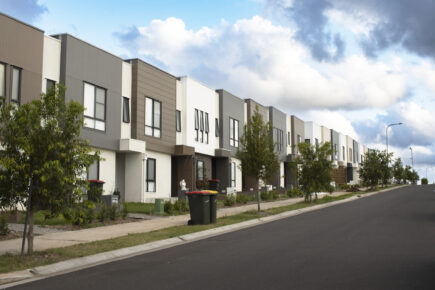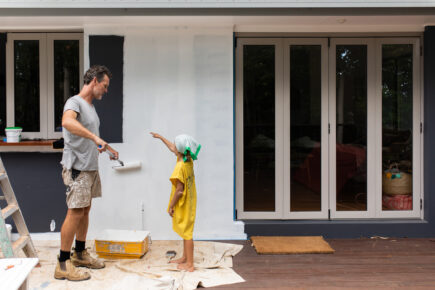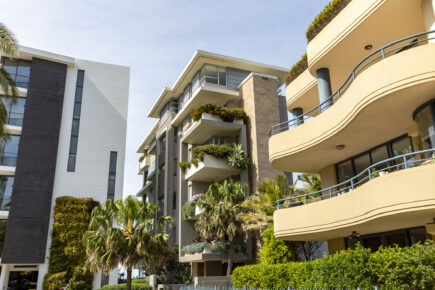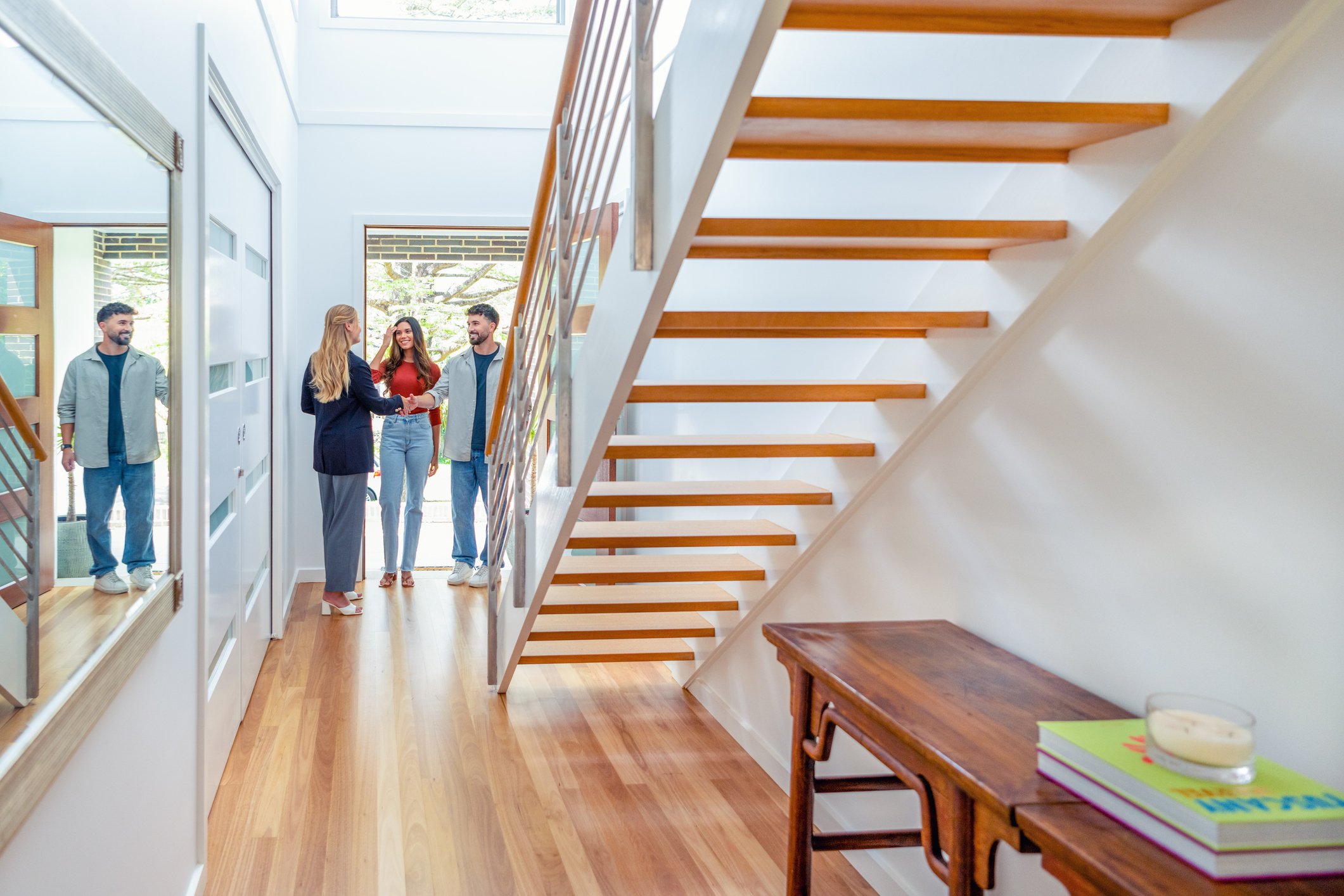Approximately 31% of homes in Australia are occupied by renters, where tenants pay to live in a property owned by someone else. Most of the time, property managers and real estate agents play middleman between the renter and the owner, advertising the property to potential tenants, screening applicants and dealing with ongoing maintenance, for which they receive a management fee. This works differently with a private rental.
What is a private rental?
A private rental is when the owner manages the property, eliminating the need for a third party, such as an estate agent or property manager. While this means more work for the owner, it usually leads to more income.
» MORE: Renting vs. buying in Australia
Who are private landlords?
A private landlord is simply the owner of the rental property. Their status as private means they don’t use any external management.
The number of private landlords has steadily risen in recent years, now representing 26.2% of the entire rental market, according to Australian Bureau of Statistics data[1].
The decision to act as a private landlord will depend on different factors for each owner. They may choose private renting if they have the time, want more income, or want a more personal relationship with their tenants.
How are they regulated?
Private landlord registration laws differ from state to state. In New South Wales, landlords need to register with Rental Bonds online, while in other states landlord
Renters also have rights that protect them from landlord mistreatment. Here are links to each state and territory’s specific renter/landlord laws:
- New South Wales Residential Tenancies Act
- Victoria Residential Tenancies Act
- Queensland Residential and Rooming Accommodation Act
- South Australia Tenancies Act
- Tasmania Residential Tenancy Act
- Western Australia Residential Tenancies Act
- Northern Territory Residential Tenancies Act
- ACT Residential Tenancies Act.
Private rental contracts and rules
Reading over the contract is important before moving into a private rental, as some states and territories do not force landlords to register with the government. There are regulations regarding the condition of the property, but you should still be careful to ensure your contract includes the right information. Look out for details such as:
- information about who is renting and who the landlord is
- how much rent needs to be paid (and how frequently)
- the length of the tenancy agreement
- the rental bond or deposit amount
- specific restrictions/obligations on maintenance and use of the premises
- special terms specific to the tenant or landlord, such as rental increases.
Your contract protects you as a renter from unfair treatment or eviction. It’s important to remember that private landlords may be well-intentioned but not fully aware of their rights and obligations as an owner and your rights as a renter.
The contract should make the terms legally binding, which you can refer to down the track if you have issues. You should also carefully read the terms regarding evictions, inspections and notices of rent increases.
» MORE: Can you pay rent with a credit card?
What about rental increases?
Unfortunately, as a renter, you may experience rental increases during or after your contract term. The rules about how often they can occur differ from state to state, but your landlord usually needs to give you notice between 30 and 60 days.
Again, carefully reading your contract is crucial, as it could include exceptions to these laws. Having a binding contract will also help if you need access to government benefits such as rental assistance.
Are private rentals a good idea?
Advantages
If your landlord is diligent and organised, they may be quicker at addressing questions regarding improvements or maintenance to your rental property.
Having a personal relationship with your landlord could mean fewer rental increases during your lease (or at least a respectful dialogue about potential increases).
You may also get first priority in renewing your contract at the end of the term if you rent off someone you know or have developed a good relationship with.
Disadvantages
Your private landlord might not have a solid understanding of tenant/owner regulations. Subsequently, handling disputes, maintenance or repairs may take longer than with a rental managed through an agency.
When you rent through an agency, if you have issues with how the property is being managed, you may be able to contact your landlord before seeking legal action to resolve the issue. However, with a private rental, your landlord is your only point of contact, meaning any issues you have can only go through them.
Private landlords may try to entice you with more affordable rent in exchange for a less formal contract. However, rentals advertised on Facebook groups or through word-of-mouth might be scams, make unfair requests regarding contract terms or cut corners in the agreement, which could lead to more issues down the track.
» MORE: Are rent-to-own homes scams, or what?
How to find private rentals
When you rent a property privately, the process may follow a typical timeline to renting through a real estate agency, but there are factors to pay attention to.
Private landlords advertise rentals on the same websites where you’d find other rentals, but they may also promote listings through social media. Additionally, you could find leads by word-of-mouth or through someone you know. However you find an available rental, it’s always best practice to visit the property at an inspection before applying.
The application process involves the owner screening potential tenants. They will ask for information about your income, rental history and legal status in Australia (whether you’re a citizen, permanent resident or on a visa).
Steps to take before signing a lease
Before you sign a contract, you may want to consider the following questions:
- Has the landlord managed properties before?
- How responsive are they to texts, calls and emails?
- What is the condition of the property?
- How often do they increase the rent?
- How much is the bond/deposit?
- How often do they plan to inspect the property while you live there?
Unfortunately, screening your owner may not be an option for renters in competitive property markets, and you may not always be able to get answers to all your questions. However, simply meeting the landlord and inspecting the property in person is a good first step.
Article Sources
-
Australian Bureau of Statistics (2019-20), “Housing Occupancy and Costs,” accessed April 10, 2024.
DIVE EVEN DEEPER

What Is A Dual Key Apartment?
Property investors often use dual key apartments to receive double the rental income from one property.

What Is A Townhouse?
Deciding to purchase a property is a big decision. As you weigh your options, comparing townhouses, apartments and houses can help guide you in the right direction.

Can You Renovate An Apartment?
Renovations can improve your quality of life as a homeowner and increase the value of your property. But for apartment owners, gaining strata approval is a challenge.

What Is A Rental Bond?
Beyond weekly payments, one of the largest costs associated with renting is likely your rental bond.

